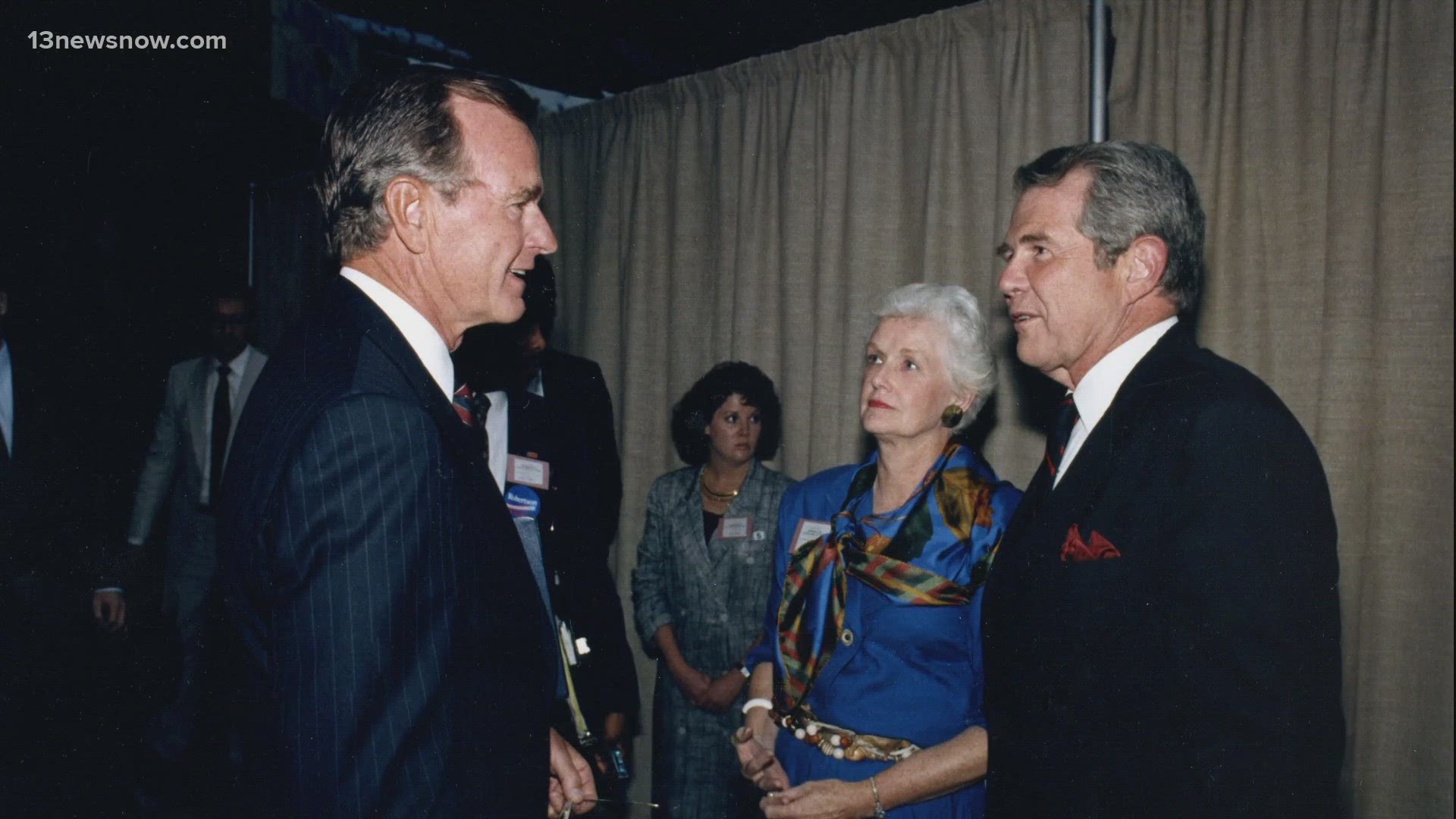VIRGINIA BEACH, Va. — Pat Robertson, who died Thursday at age 93, was an ordained Southern Baptist minister who became a media mogul.
For more than a half-century, Robertson was a familiar presence in American living rooms, known for his “700 Club” television show -- which is broadcast in 174 countries -- and in later years, his televised pronouncements of God’s judgment, blaming natural disasters on everything from homosexuality to the teaching of evolution.
He brought his conservative politics into millions of living rooms as the pioneer of the Christian Broadcasting Network and the Christian Coalition.
He stood side-by-side in 2016 with Donald Trump, days before the presidential election. But, that was not Robertson's first foray into elective politics.
He had his own unsuccessful run for president in 1988.
"By running for president, he pretty much solidified the idea that the Republican Party would have to share its tent with fundamentalist Christians, evangelicals. And they've been there ever since," said Larry Sabato, founder and director of the University of Virginia Center for Politics and a political science professor at UVa.
Robertson pioneered the now-common strategy of courting Iowa’s network of evangelical Christian churches, and finished in second place in the Iowa caucuses, ahead of Vice President George H.W. Bush.
His masterstroke was insisting that three million followers across the U.S. sign petitions before he would decide to run, Robertson biographer Jeffrey K. Hadden said.
The tactic gave him an army.
″He asked people to pledge that they’d work for him, pray for him and give him money,” Hadden, a University of Virginia sociologist, told The Associated Press in 1988. ″Political historians may view it as one of the most ingenious things a candidate ever did.″
Robertson's presidential run paved the way for the Christian Coalition that he founded in 1989, rallying evangelical voters and distributing voting guides to churches. The coalition became a major political force in the 1990s, mobilizing conservative voters through grass-roots activities.
The coalition supported conservative positions on family values and advocated against policies the group perceives as discriminatory towards Christians, opposed abortion, and pushed to end federal funding of Planned Parenthood.
By the time of his resignation as the coalition's president in 2001 -- Robertson said he wanted to concentrate on ministerial work -- his impact on both religion and politics in the U.S. was “enormous,” according to John C. Green, an emeritus political science professor at the University of Akron.
Many followed the path Robertson cut in religious broadcasting, Green told the AP in 2021. In American politics, Robertson helped “cement the alliance between conservative Christians and the Republican Party.”
Sabato said whether you agreed or disagreed with Robertson, there's no denying he was a force to be reckoned with. And, his political legacy is an important one.
"Robertson had a role in transforming the Republican Party into a social and cultural party. And the culture wars of today that are being waged by Gov. [Glenn] Youngkin are directly traced to Pat Robertson and his other televangelists," he said.
Politics runs in the family. Robertson's late father, A. Willis Robertson, served in public office for 50 years, including in the U.S. Senate.

